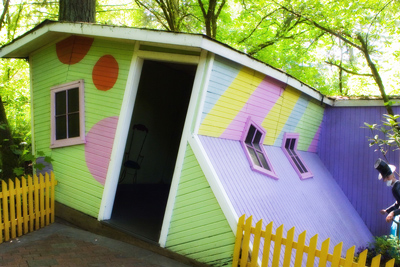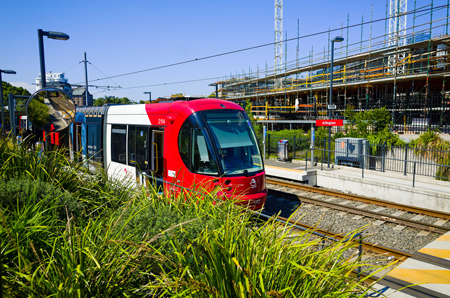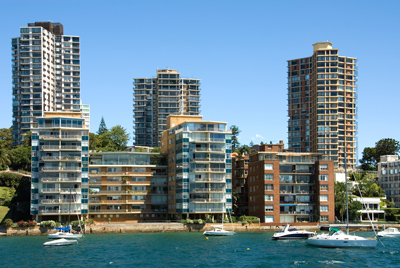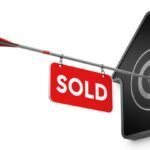The housing market in Sydney is clearly moving lower.
Sydney property prices are now 4.2 per cent lower than in June 2017. Our harbour city is leading the country’s property downturn.
Nobody has a crystal ball. However, given the volatile state of the Sydney housing market, the stakes are getting higher.
Are you sure you are investing in a recession-proof home?
Let’s find out.
It’s normal to want to pay less for a home. Everyone likes to feel like they were able to save money on a property. While it is possible, be wary of homes with low prices.
While a listing that’s priced low may sell fast, consider that the low price may offset an incurable defect, such as a bad location or a busy street with a high noise level. And these type of properties do not weather a recession well.
If this is how you want to go about, keep in mind that the resale price for this type of property is low. If you’re buying when property market conditions are good, be extra careful for you are more likely to overpay and to overlook defects that you wouldn’t in not-so-good market conditions.
When you buy an investment property, always have the resale value at the forefront of your mind. While you cannot predict the next housing recession, it pays to be more cautious in your home buying decisions. Poor investment decisions make you lose money. If that doesn’t incentivize you be on the lookout, then I don’t know what will.
Investment properties that are recession-proof appeal to a broad cross-section of buyers, such as:
A home with a good floor plan

Having an unusual floor plan that doesn’t flow might not be worth the money you spend on the design and construction.
Unless it’s a home you plan on staying in forever yourself, try to avoid floor plans that are too dated or too specific or unique.
If you must have a unique floor or home plan ask yourself the following question: Is this appealing enough to a sufficient number of potential tenants? The answer will very often be a firm no.
Investment homes are not a time to express your individuality.
A recession-proof home is not expensive to maintain
Buying an old home can be expensive. Stuff such as antiquated systems and a pool means frequently spending for updating and maintenance. If you’re getting a good deal on a home, but must spend tens of thousands of dollars more to replace old or faulty equipment, do you think you’ll be able to sell that in a housing market slump?
A home in good condition can weather a recession
Before buying a house, ask yourself how much it will cost you to actually own the home. That means looking beyond the price tag of the house and look at the condition of the home specifically.
A leaky roof, a termite infestation, presence of mould, and cracked foundation or anything at all that needs replacing adds to the total cost of the home.
Will the appliances and lighting fixtures help you save on energy costs? Something seemingly innocuous such as this will help your home retain its value during a recession.
A recession-proof home is in a good location
In a depressed market, buying a foreclosed home may be tempting, but is it really a good deal? If the property is surrounded by a block of foreclosed properties, it means they are not recession proof, not to mention it’s a bad omen.
There are property markets in Sydney that will always be in demand, such as properties in the Northern Beaches, specifically in Mosman, Balmain, and Kirribilli.
A transit-accessible home is a recession-proof home
 There’s an interesting connection between public transportation and housing.
There’s an interesting connection between public transportation and housing.
People who buy homes are always looking at the ease-of-transportation.
A home that’s out of the way and not transit-accessible is a tough sell. This is because properties close to trains, subways, and streetcar lines are convenient and provide an easy commute to work.
But to what extent does this determine the price of such a conveniently located home?
One of the main reasons people choose homes near transit is because transit gives access to more jobs.
Homes that are transit-accessible provides access to up to five times as many jobs per square mile as compared to other areas in a given region.
Another bonus is if the property is within walking distance to schools, hospitals, restaurants, parks, and the beach, especially in Sydney.
Apartments and condo units retain their value best in a recession
 Apartments and condo units located around universities, parks, cafes, shops, beaches and are transit-accessible are always a good investment.
Apartments and condo units located around universities, parks, cafes, shops, beaches and are transit-accessible are always a good investment.
These are the types of property that will always bring in positive cash flow, particularly in rentals.
Condo units and apartments are more affordable than houses, so it’s easier for you to raise the necessary capital. Council rates are also usually higher on a house, plus you’ll be required to pay land taxes on an ongoing basis.
If you buy an apartment, some of the maintenance and care is the responsibility of the body corporation. That saves you money on maintenance costs that are a constant if you own a house.
Because of their cheaper costs, they are also attractive for tenants. This means you are more likely to avoid a vacant apartment than a vacant house.
Let A Buyer’s Agent Help You Choose and Invest In A Recession-Proof Home
Real estate downturn, recession or boom, working with a good buyers agent is always a good idea. Too much money is at stake. You want a professional on your side who knows the local market inside and out.
You save a lot of let work with someone else looking at properties with the right potential. This includes properties that may not even be advertised, but come out of your agent’s network of contacts.












